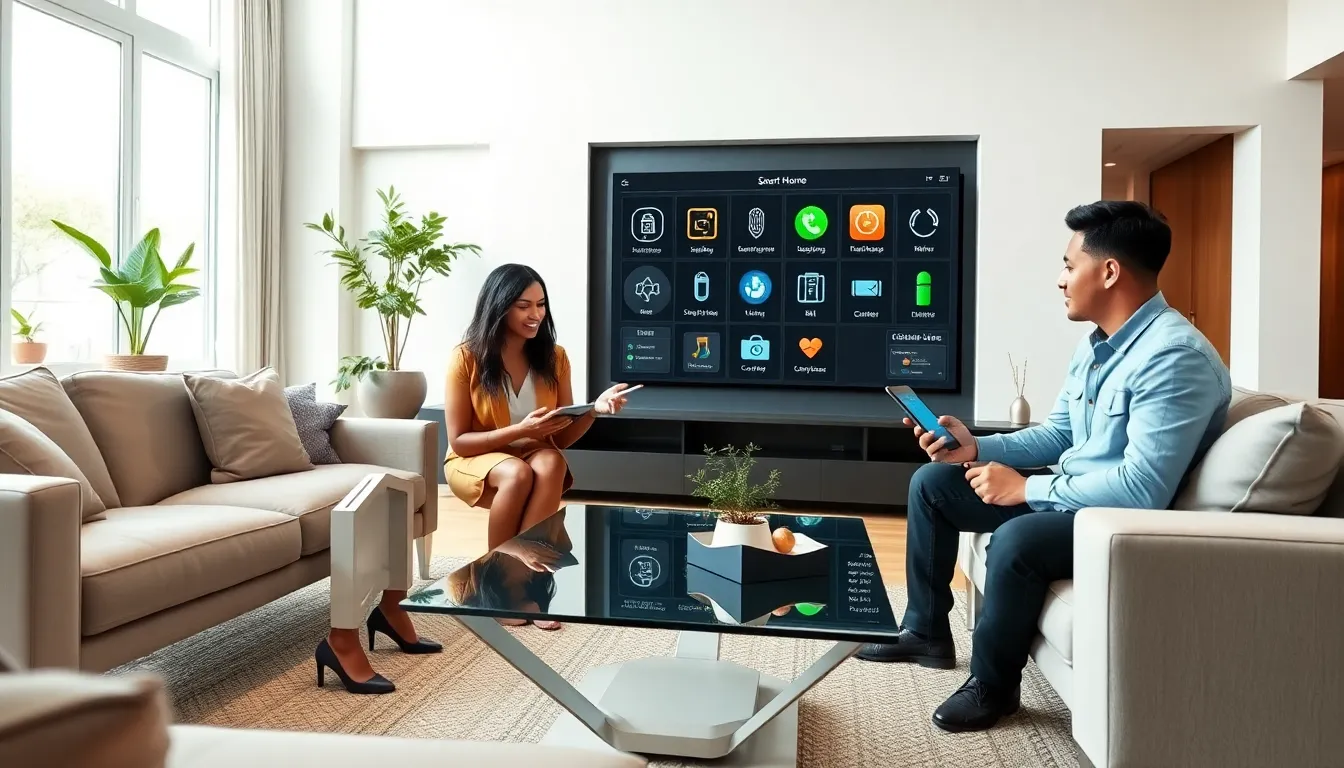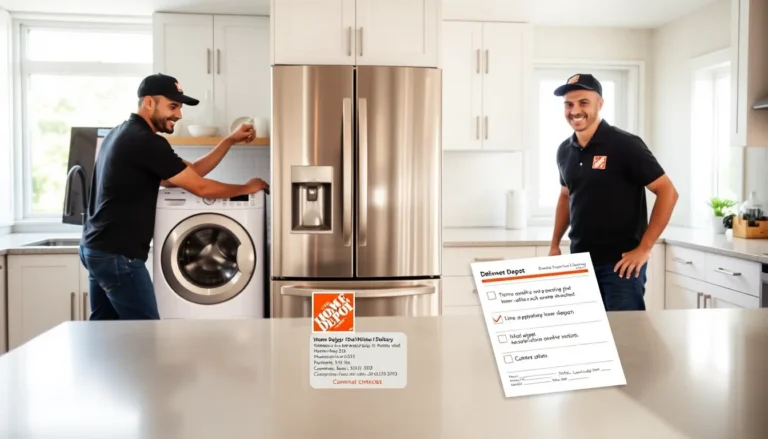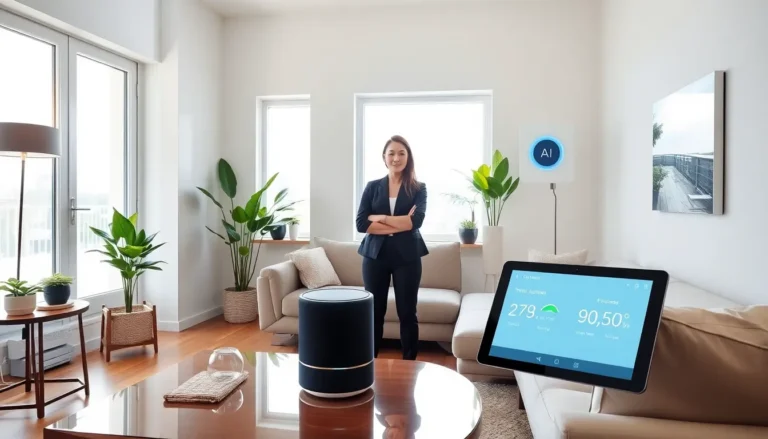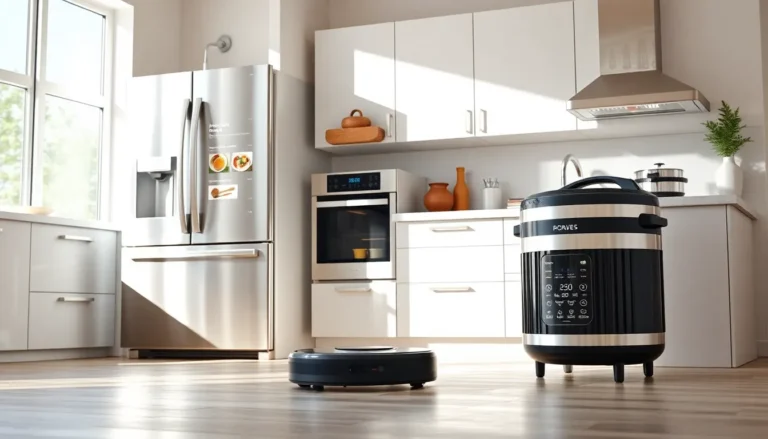Imagine a world where your coffee brews itself as you wake up and your living room lights adjust to your mood, all while your home manages to keep the energy bills in check. Welcome to the realm of smart homes. As technology interweaves with comfort and convenience, smart homes builders are at the forefront, creating living spaces that feel more like personal assistants than mere structures. Why settle for a standard house when you can have a home that thinks for you? Let’s investigate into the intriguing realm of smart homes, the builders behind them, and why they’re shaping the future of residential living.
Table of Contents
ToggleUnderstanding Smart Homes and Their Importance

Smart homes use interconnected devices to enrich the living experience. From smartphones that remotely control your thermostat to security systems that alert you of any unusual activity, these homes provide convenience and peace of mind. The importance of smart homes extends beyond mere comfort: they can also significantly enhance energy efficiency, reduce utility costs, and improve the overall safety of your living environment.
In a fast-paced world, the integration of smart technology caters to an increasingly busy lifestyle. Homeowners are constantly looking for ways to simplify their routines, and smart homes deliver just that. With the rise of remote work and sustainability concepts, smart homes are not just trendy, they’re becoming essential for modern living.
Key Features of Smart Homes
When looking to invest in a smart home, understanding its key features is crucial. Here are the most prominent aspects:
- Automated Lighting: Smart lighting systems allow homeowners to control brightness and mood through apps or voice commands.
- Smart Thermostats: These devices learn your patterns and adjust heating or cooling automatically, ensuring comfort while saving energy.
- Home Security Systems: From doorbell cameras to motion detectors, security can be monitored remotely, offering peace of mind.
- Smart Appliances: Refrigerators that notify you of expired food and ovens that can be preheated from your phone add a layer of efficiency.
- Voice Assistants: Devices like Amazon Alexa and Google Home integrate with various smart systems for seamless operation.
These features are just the tip of the iceberg. Each innovation contributes to a smarter, more efficient lifestyle, demonstrating why potential homeowners are turning to smart homes as their top choice.
How to Choose a Smart Home Builder
Selecting the right smart home builder is essential for a satisfactory experience. Here are some tips to make an informed choice:
- Research Credentials: Look for builders with experience in smart home technology. Check reviews, certifications, and past projects.
- Discuss Your Needs: A builder should take the time to understand your lifestyle and preferences, making tailored recommendations based on your needs.
- Evaluate Technology Partnerships: Determine if the builder partners with reputable technology suppliers. Strong partnerships often lead to better installation and support.
- Consider Scalability: Make sure the builder offers solutions that allow for future upgrades and expansions of your smart home system.
- Warranty and Support: Finally, check what kind of maintenance support and warranty options are available after construction is completed.
By following these guidelines, homeowners can find a smart home builder who can turn their vision into reality.
The Process of Building a Smart Home
Building a smart home involves several intricate stages, each requiring careful attention to detail. Here’s a general overview of the process:
- Initial Consultation: A detailed discussion with the builder to express preferences, budget constraints, and lifestyle needs.
- Design Planning: Architects and designers create blueprints that integrate smart technologies, ensuring everything fits seamlessly.
- Builder Selection: The homeowner selects a contractor who specializes in the latest smart home technologies.
- Installation Phase: This involves the installation of devices, wiring, and systems that provide connectivity.
- Testing and Configuration: After installation, thorough testing ensures all systems are functioning correctly and optimally.
- Homeowner Orientation: Finally, builders provide training to homeowners on using their new smart home features effectively.
Following these steps allows for a smoother building process, yielding a functional and technologically advanced home.
Benefits of Working with Smart Home Builders
Choosing to work with experienced smart home builders comes with numerous advantages:
- Expert Guidance: Builders offer insights based on the latest technology trends, helping homeowners make informed decisions.
- Custom Solutions: Smart home builders can create personalized setups that cater specifically to a homeowner’s lifestyle.
- Quality Assurance: Builders with a strong track record ensure that installations meet high-quality standards, reducing future issues.
- Integration Ease: Professionals simplify the integration of various systems, ensuring everything operates in harmony.
- Increased Property Value: A smart home is a valuable asset that can attract buyers, potentially increasing resale value.
These benefits not only enhance the building experience but also contribute to the home’s lasting value.
Future Trends in Smart Home Construction
The landscape of smart home construction is continually evolving. Here are some future trends to watch:
- Sustainability: More smart homes are incorporating sustainable materials and energy sources, promoting eco-friendly living.
- AI Integration: Artificial intelligence will become increasingly common, allowing homes to learn and adapt to occupants’ preferences.
- Health Monitoring: Future smart homes may feature health analytics technologies that monitor the wellness of residents, providing alerts for potential health issues.
- Enhanced Security Features: Ongoing advancements in security will make homes significantly safer, integrating biometric systems and advanced surveillance.
- Smart City Connections: As smart cities emerge, homes will connect even more closely with urban infrastructures, facilitating better resources and communication.
These trends indicate that as technology progresses, so too will the capabilities and functionalities of smart homes.





